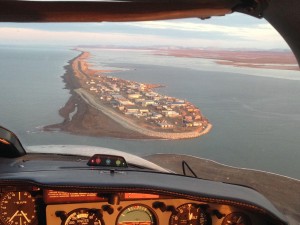Proposed state legislation would extend a ban on local governments from receiving state funds to pay for new bond debt to build schools for another five years.
The state stopped covering 60%-70% of new school bonds beginning in 2015. This moratorium is scheduled to end next year.
North Pole Republican Rep. Tammie Wilson sponsored House Bill 106, which would keep the moratorium in place. She said municipalities could otherwise approve bonds with the idea that the state would reimburse them. But she said the state may not have the money to do that.
“I brought this bill forward because we are having difficulty being able to pay what we currently owe, and it would be unfair to Alaskans, in my opinion, to put more bonds out there and then to discuss why we’re not paying them,” she said.
The state has been reimbursing municipalities for most bond debt for school bonds issued before the moratorium. It doesn’t have a legal obligation to do that. Local voters are told when they approve bonds that the state’s share is subject to the annual state budget process.
The bill doesn’t address Gov. Mike Dunleavy’s proposal, Senate Bill 59, to stop all state reimbursements for local bond debt — including for existing bonds — in the next budget.

Opponents of Wilson’s bill said extending the moratorium would affect some municipalities immediately. Northwest Arctic Borough School District wanted state support for a bond to help with construction of a new Kivalina School. The school is relocating due to coastal erosion. Borough Mayor Lucy Nelson said the state should fund new schools as part of its requirement to fund education.
“The state of Alaska is responsible for funding schools, made a prior commitment to reimburse a portion of school bond debt, and local governments have relied on that commitment in good faith,” she said. “Any change in the state’s commitment on school bond debt reimbursement poses a significant financial burden on local communities.”
Nelson said an agreement with Red Dog mine limits Northwest Arctic Borough’s ability to raise revenue from its limited local tax base. She asked lawmakers to consider municipalities that have similar agreements — known as payments in lieu of taxes — as they consider the bill.
The House Finance Committee discussed Wilson’s bill on Monday. Neither chamber has scheduled a hearing on Dunleavy’s proposal.
Andrew Kitchenman is the state government and politics reporter for Alaska Public Media and KTOO in Juneau. Reach him at akitchenman@alaskapublic.org.




